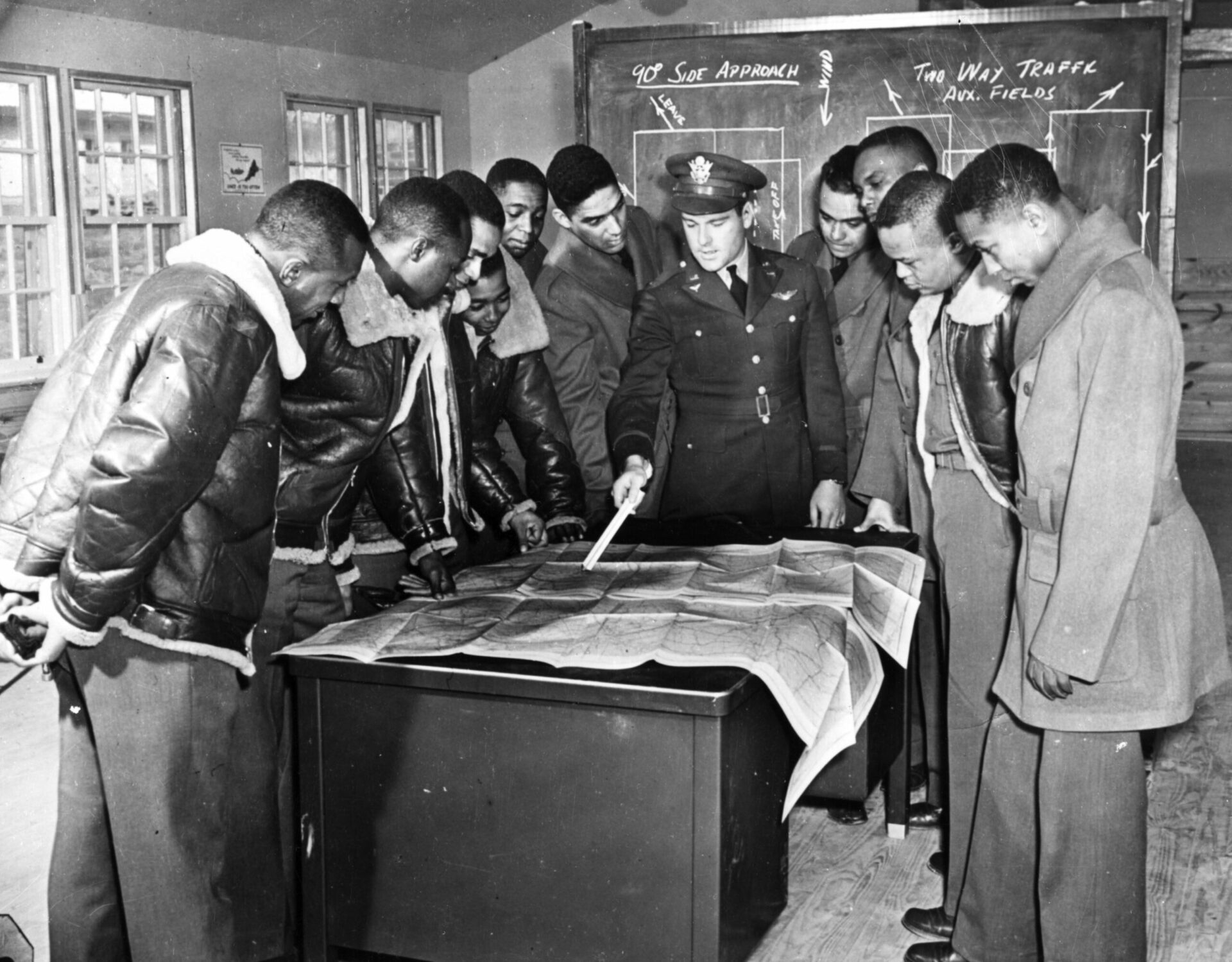
September 28, 2025
In 2024, Hardy and the Tuskegee Airmen were honored by The National WWII Museum in recognition of their accomplishments and patriotism in the face of discrimination.
Lt. Col. George Hardy, an original Tuskegee Airman and the last surviving of the group’s combat pilots, died on Sept. 23 at the age of 100, according to a press release from Tuskegee Inc.
According to Leon Butler, the national president of Tuskegee Airmen Inc., “His legacy is one of courage, resilience, tremendous skill, and dogged perseverance against racism, prejudice, and other evils. We are forever grateful for his sacrifice and will hold dear to his memory.”
As NBC News reports, Hardy was the youngest member of the Tuskegee Airmen, completing the Army Air Corps pilot training program in 1942 at just 19 years old, which earned him a commission as a second pilot. Hardy, one of the few Black military pilots at the time, flew 21 missions during World War II and also served during the Korean and Vietnam Wars.
At the time of Hardy’s original enlistment, the United States military was segregated and the United States government created the Tuskegee Experiment, not to be confused with the Tuskegee Syphilis Study, sometimes informally referred to as the Tuskegee Experiment, in order to ascertain whether or not Black Americans were capable of commanding and maintaining their own units in battle.
According to the Malmstrom Air Force Base, the term Tuskegee Airman actually refers to a wide range of people who were involved in the Army Air Corps program, pilots, navigators, bombardiers, maintenance and support staff, instructors and others who were responsible for helping to keep those planes piloted by Hardy and others in the air.
In 1940, the initial Civilian Pilot Training Program that eventually spawned what became the center of Black aviation during World War II was completed.
Somewhat ironically, because there were initially no Black pilot instructors, 11 white officers were assigned to teach the 429 men who enlisted alongside 47 officers, thus creating one of the first integrated units in the United States military.
According to the National Park Service, the Army Air Corps program was created to test out a racist assumption outlined in a 1925 War Department (now the Department of Defense) study, which set forth that “the Negro is fundamentally inferior” to whites. It also used the arguments of now debunked race science that claimed that Black people lacked the requisite intelligence, courage, and the physical ability to operate complicated military equipment.
Despite the intention to disprove these racist assumptions, the United States still tried to sabotage the pilots by sending them to North Africa where they would not engage with the enemy.
Due to this arrangement, the United States military declared the unit ineffective and sent them back stateside, but thanks to testimony from Benjamin O. Davis before Congress, the pilots were allowed to escort white bomber crews to and from their targets. They were so effective at this task that they were requested by white bomber pilots to be their designated escorts.
And of course, aside from fighting the fascism of the Axis powers like Nazi Germany and Italy, they faced an American version of the same struggle at home, per the National Park Service.
Since the program was located in Tuskegee, Alabama the participants faced the indignity of Jim Crow laws designed to “keep them in their place” as well as the white citizens of the city’s intense opposition to their presence, often threatening to have them arrested for merely walking down the street.
In spite of this, Hardy and others never wavered from their mission.
“Colonel Hardy was an amazing man. He was a patriot. He loved his family. He loved his community. He loved our organization,” Butler told NPR. “He worked very hard. He worked tirelessly to preserve the legacy, not for himself, but for those that he served with, and he cared about the families of other original Tuskegee Airmen.”
According to NPR, while he was alive, Hardy received numerous honors for his military service. These include the Distinguished Flying Cross with Valor, a Commendation Medal with one Oak Leaf Cluster and an Air Medal with 11 Oak Leaf Clusters. In addition, in 2007, he and other Tuskegee Airmen were awarded the Congressional Gold Medal, the highest civilian award given by the United States Congress for distinguished service to the country.
In 2024, Hardy and the Tuskegee Airmen were honored by The National WWII Museum, which recognized them with the American Spirit Award, that institution’s highest honor, given in recognition of their accomplishments and patriotism in the face of discrimination.
At the time, Hardy remarked, “When I think about the fellas who flew before me and with me at Tuskegee, and the fact that we did prove that we could do anything that anyone else could do and it’s paid off today … it’s hard to believe that I’m here receiving this award—with them.”
RELATED CONTENT: HBCU Student, Isaiah Hand, Becomes First Tuskegee Airman In 80 Years


